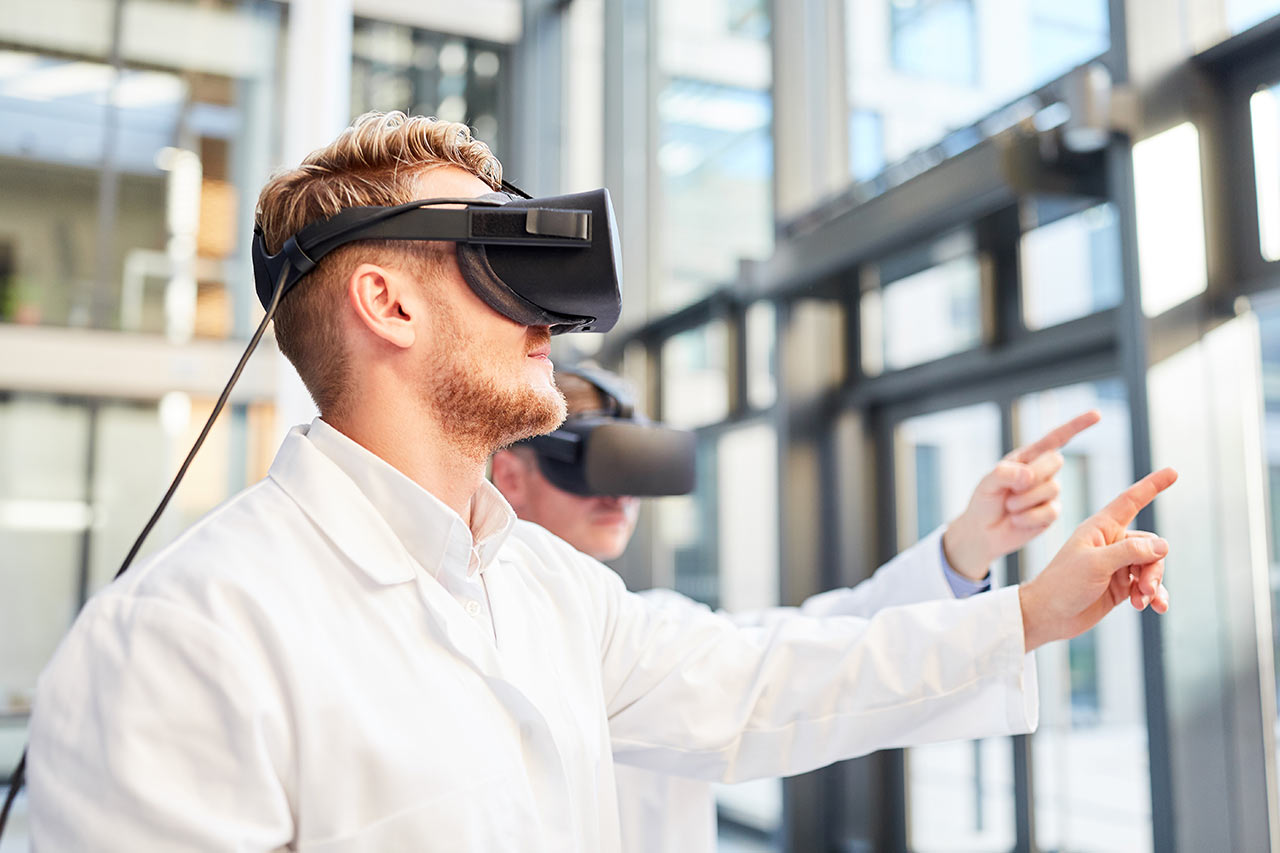While traditional pharma R&D model runs out of breath, digital technologies and particularly AI-based approaches may be a way to optimization. Alcimed reviews latest progress in that dynamic field and address how it will rewrite the playbook for drug discovery.
Drug development: a long, expensive, and tedious journey
For several years now, the declining productivity of pharma Research & Development (R&D) has been identified as a major problem as it becomes unsustainable over time. It takes on average 10 years to bring a new drug to these market based on a traditional drug discovery process. According to the Tufts Center for the Study of Drug Development (CSDD), the cost of developing a new prescription drug with market approval is approximately $2.6 billion and only 1/20 drugs gain approval clinical trials. This represents a 145% increase from 2003 to 2014.
This phenomenon, known since 2012 as the “EROOM” law, states that the number of new drugs approved per billion USD spent on R&D has been cut half every 9 years since 1950. The clear reference to the famous Moore’s law in the semiconductor industry makes a bleak depiction of R&D evolution over the last decades.
Ultimately, this decrease of R&D productivity translates into higher risk of development and raising drug prices when they reach the market. This poses a double threat: economic sustainability for the pharmaceutical industry and accessibility of innovative medications for patients. Hence, it is not a surprise that approaches to streamline pharmaceutical R&D are under high scrutiny.
Artificial Intelligence in pharma R&D: towards efficiency
Artificial Intelligence holds many promises in the field of healthcare, from AI-supported medical diagnosis to patients’ triage, from NLP-empowered administrative tasks to early detection of symptoms. More specifically,within the realm of pharma R&D, its range of potential benefits is very broad:
At time of writing, the BenchSci blog has listed more than 230 companies and start-ups operating in these respective fields, many of which have entered concrete partnerships with pharma companies.
Computer-aided drug discovery is not new. In 1981 Fortune Magazine published a cover article entitled “Next Industrial Revolution: Designing Drugs by Computer at Merck”. What changed during the last four decades is both an increase in data availability and the renewal of Artificial Intelligence in the early 2010’s with Machine Learning (ML) and Deep Neural Networks (DNN) taking the front stage of healthcare AI.
For example, Takeda announced the extension of a pre-existing with the AI company Recursion Pharmaceuticals. For 18 months, they have jointly evaluated and identified novel preclinical candidates for rare diseases in over 60 unique indications. New therapeutic candidates were identified for over half a dozen diseases, two of them being included in the option exercised by the Japanese pharma company. Another landmark moment in the field was when Insilico Medicine published in 2019 that in 46 days they generated lead compounds for a previously known fibrosis target, filtered 30,000 possible molecules down to 6 most promising ones and confirmed the lead candidate’s disease activity on murine models. Since then, the company has also claimed to having found an uncovered target for Idiopathic Pulmonary Fibrosis and designed a molecule fitting this new mechanism of action for less than $2M and 18 months.
While it is too early to claim a clinical success as no AI-discovered molecule has hit the market yet, such a gap with traditional 5-8 years of drug discovery represents a critical untapped opportunity for pharma to reduce risks, speed up developments and multiply the efforts over a larger panel of targets or indications. Indeed, the largest chunk of R&D costs for pharmaceutical development lie in trials speed fast. Failing fast becomes a new talent for the pharmaceutical companies to master if they want, not only to succeed, but to thrive in the future of the industry.
Focus on drug repurposing: fast-pace to new modalities
One field where AI could be a game-changer is drug repurposing (or drug repositioning) eg. finding alternative uses for a pioneering drug or a drug that is made by another innovator, both approved or failed. In this specific scenario, the objective is to shorten the full candidate development process by relying on derisked drugs. These stakes are particularly high in neglected areas such as rare disease where princeps drug development is extremely risky, or in CNS where pharma unfortunately met several disappointments in last years leading to progressive disinvestments.
Many of the 230+ companies mentioned above have a footprint in these therapeutic areas. For example SOM Biotech, in Spain, licenses-out compounds identified thanks to its proprietary platform, but also carries out its own developments, on Huntington’s disease chorea or phenylketonuria. Recursion Pharmaceuticals, mentioned above has also followed the path of internal developments of leading compounds in various rare diseases such as neurofibromatosis. Such applications offer hope to find therapeutic modalities for patients in areas where the level of unmet need is particularly high.
In these areas and beyond, the downstream integration of Artificial Intelligence, for example for patient recruitment, cohort constitution, clinical trial management, or in silico trial designs, let us picture a new playbook for pharmaceutical R&D where computer-aided drug development solves two problems in one : terminate EROOM law and fill the gap in neglected therapeutic areas.
About the author,
Benjamin, Great explorer and Christelle, project manager in the Alcimed’s Healthcare team in France



